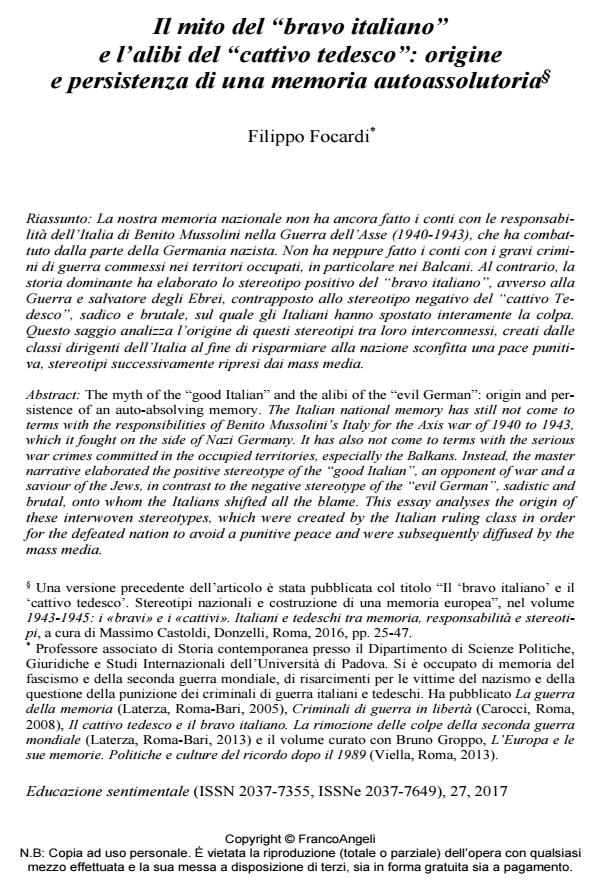Il mito del "bravo italiano" e l’alibi del "cattivo tedesco": origine e persistenza di una memoria autoassolutoria
Journal title EDUCAZIONE SENTIMENTALE
Author/s Filippo Focardi
Publishing Year 2017 Issue 2017/27
Language Italian Pages 19 P. 20-38 File size 283 KB
DOI 10.3280/EDS2017-027003
DOI is like a bar code for intellectual property: to have more infomation
click here
Below, you can see the article first page
If you want to buy this article in PDF format, you can do it, following the instructions to buy download credits

FrancoAngeli is member of Publishers International Linking Association, Inc (PILA), a not-for-profit association which run the CrossRef service enabling links to and from online scholarly content.
The myth of the "good Italian" and the alibi of the "evil German": origin and persistence of an auto-absolving memory. The Italian national memory has still not come to terms with the responsibilities of Benito Mussolini’s Italy for the Axis war of 1940 to 1943, which it fought on the side of Nazi Germany. It has also not come to terms with the serious war crimes committed in the occupied territories, especially the Balkans. Instead, the master narrative elaborated the positive stereotype of the "good Italian", an opponent of war and a saviour of the Jews, in contrast to the negative stereotype of the "evil German", sadistic and brutal, onto whom the Italians shifted all the blame. This essay analyses the origin of these interwoven stereotypes, which were created by the Italian ruling class in order for the defeated nation to avoid a punitive peace and were subsequently diffused by the mass media.
Filippo Focardi, Il mito del "bravo italiano" e l’alibi del "cattivo tedesco": origine e persistenza di una memoria autoassolutoria in "EDUCAZIONE SENTIMENTALE" 27/2017, pp 20-38, DOI: 10.3280/EDS2017-027003